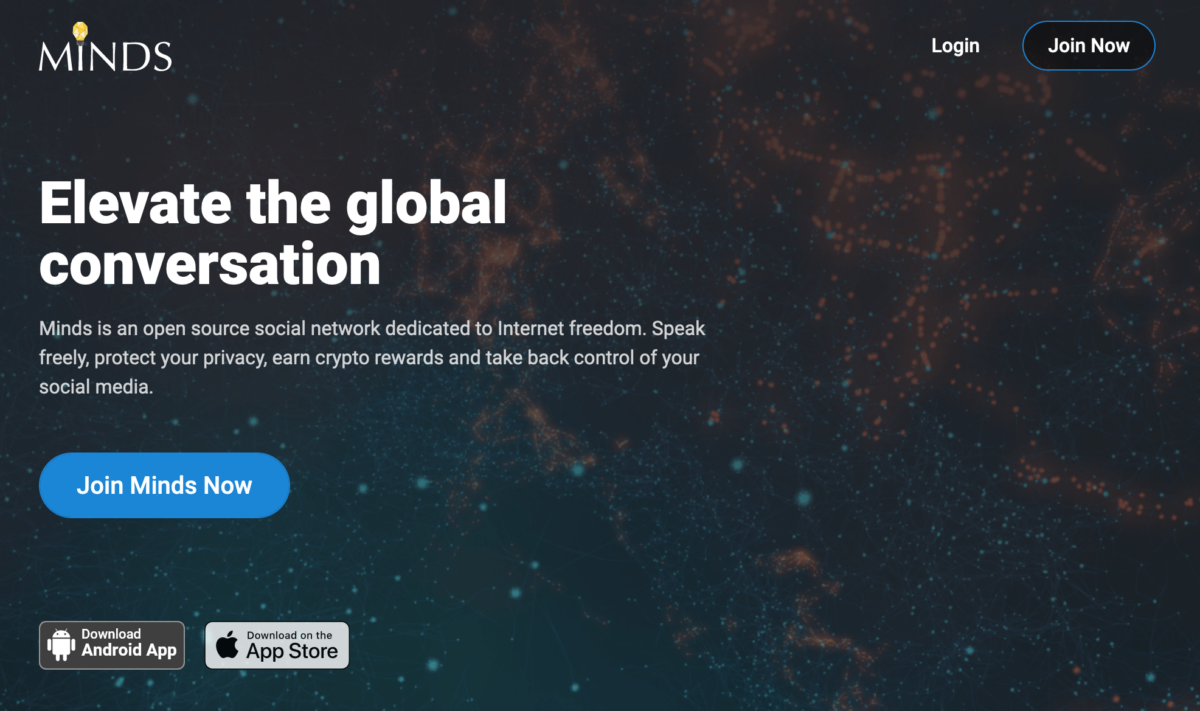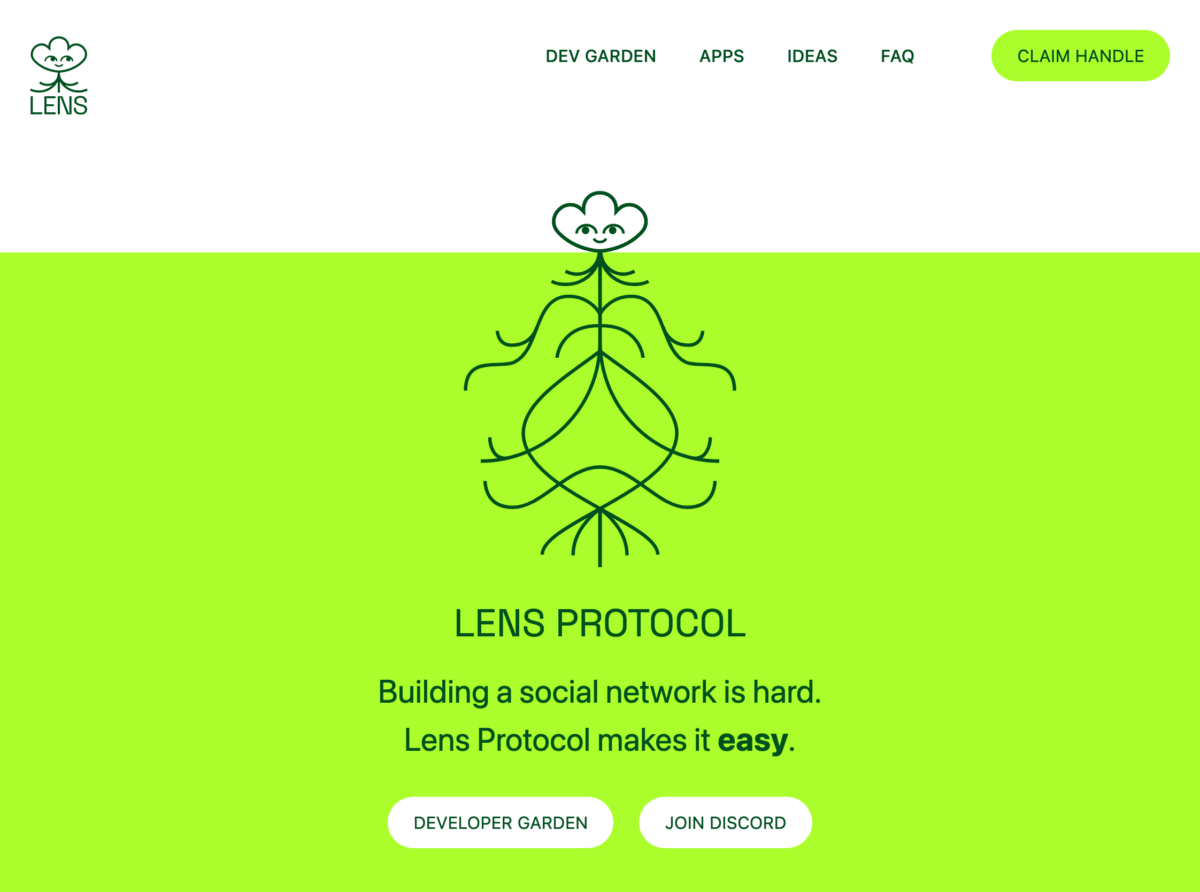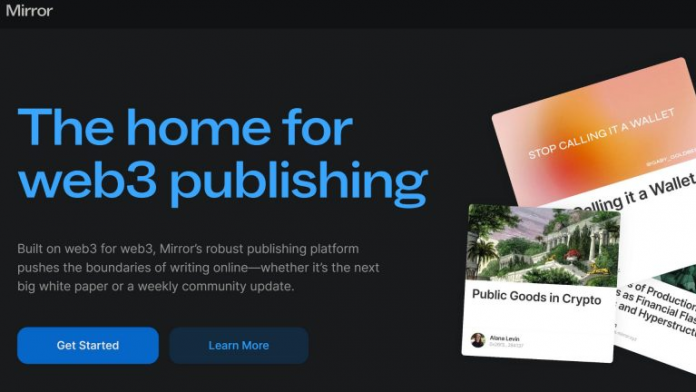Elon Musk’s recent Twitter takeover has the internet split. On the one hand, some users are high on the idea that the billionaire maverick’s uncompromising leadership style can truly realize the micro-blogging platform’s massive potential. For others, the acquisition sets an alarming precedent for the future of the internet at large.
Think about it. Hand one person the keys to one of the most widely-used information portals on the internet. What could possibly go wrong? Even in the early stages of that takeover, we’ve already seen a glimpse of the chaos to come.
So how do we avoid situations like this? By decentralizing the ownership of future social network platforms on the internet. It’s easier said than done, but several Web3 social media platforms want to bring this idea to fruition.
Decentralized social media networks
In Web2, you’re largely beholden to the community standards of whatever platform you’re posting on. In theory, there shouldn’t be a problem with this. Social media should provide users with an avenue to connect and share in a constructive manner. Unfortunately, the reality of things isn’t that simple.
Despite Facebook’s best efforts, moderating the platform has proven to be a gargantuan task. Given how the platform houses billions of users at this point, some activity on the site will inevitably end up falling through the cracks, unseen by the powers that be. In some cases, those that make it through end up organizing to socially disastrous results.
In other instances, some perfectly valid initiatives get caught in Facebook’s censorship algorithms, with affected users suddenly feeling completely stripped of their right to free speech. One such user was Jillian York, an activist who was temporarily banned from the platform for sharing partially-nude images in support of a breast cancer awareness campaign.
Inevitably, this instance served as an important talking point for pundits reflecting on the future of social media. In a 2017 Wired article, Chelsea Barabas, Neha Narula, and Ethan Zuckerman pondered the feasibility of a decentralized social media network. In their words, the biggest hurdle towards mass adoption of such platforms was simply attracting users.
“Social networks, in particular, are difficult to bootstrap due to network effects—we join them because our friends are there, not for ideological reasons like decentralization,” they wrote. While this may have been true then and is largely still true today, some argue that failing to challenge this notion may spell future doom for “the human race,” as discussed by SingularityNET CEO and founder Ben Goertzel in a January 2021 article on Coindesk.
So how can these social platforms serve humanity in a way that adds value? Goertzel argued that it would be paramount for future social media platforms to be open-source, decentralized in ownership, democratic in decision-making, and feature “explainable” implementations of the AI that powers these hypothetical platforms’ content algorithms.
With Web2’s social giants like Instagram and Facebook still in the early stages of their inevitable Web3 transitions, let’s look at some Web3-native social platforms hoping to steward these new changes moving forward.
Mirror

When you imagine a social media platform, what does it look like? Chances are, it resembles Facebook with its never-ending feed of content in all forms: written posts, images, videos, and now, even NFTs. But if Instagram and Twitter have shown us anything, social media platforms can flourish even if they’re just focusing on one media format.
Enter Mirror. Billed as a truly Web3 alternative to sites like Medium and Substack, Mirror prides itself on its decentralization thanks to how it splits its ownership among its user base. Anything you publish on the site is indisputably yours. Additionally, you’re free to mint anything you post onto your site as an NFT, set up subscription fees with crypto, and even set up a DAO using the site’s built-in tools.
The best part? It’s all designed to be easy to use. Users can freely read and write on the platform by connecting their crypto wallet. Thanks to its ease of use, Mirror has proven to be an invaluable platform for Web3 community and project leaders to post anything on the site. Whether it’s a detailed whitepaper or an elaborate shitpost, Mirror is a great option.
MINDS

Looking for a more diverse content experience on Web3? Give MINDS a try. Essentially a decentralized take on Facebook, MINDS users can enjoy a full-fat social media experience without any of the existential horrors that lurk on Web2’s social platforms.
As such, MINDS is built around a feature set that exemplifies its ideals of internet freedom. According to its website, that entails providing users with a meaningful avenue for free speech, the right to privacy, self-sovereignty, community governance, a fully-functional crypto economy, and an open-source platform. That last bit is critical, as discussed by Goertzel earlier.
In MINDS’ whitepaper, its founders outline how the platform hopes to tackle social media’s biggest current problems. Namely, traditional social media’s so-called “Big Brother practices” of “surveillance, algorithm manipulation, and censorship.” To counteract that, MINDS hopes to serve as a meaningful example for social platforms moving forward, particularly by keeping its “entire software stack free and open source.”
Lens Protocol

What if you could enjoy a social media experience wholly divorced from the (at times) oppressive algorithms that power them? That’s what Lens Protocol hopes to achieve.
At its core, Lens Protocol is a decentralized social graph. Social graphs are large data maps that detail the connections between users and the things they love. In the current social media landscape, platforms own the social graphs of you and everyone you know and can do whatever they wish with them. That’s why you’ll sometimes see scarily-accurate targeted ads.
But what if you could own all that data? That’s what Lens Protocol is offering its users. It starts with an NFT of your social graph, which houses all your online activity. Think of it as a social media equivalent to Soulbound Tokens (SBTs).
In the meantime…
While committing to the ideals of Web3 in full by using social media platforms built in its image is a noble pursuit, the jump isn’t so easy. As outlined in the 2017 Wired article previously discussed, most people join a social media platform because their friends are there, not because it’s necessarily a reflection of their ideas and principles. But that might not be true forever.
Ironically, the core principle of Web3 — which is to put the ownership of the internet back in the hands of its billions of users — might result in a resurgence of the types of internet experiences users in the late 90s and early 2000s enjoyed. When everyone’s de facto homepage was Yahoo, users looked to build their own micro-communities centered around their hobbies, interests, and connections. Web3’s take on social media hopes to recapture that beautiful fragmentation of old and invites users to join and form communities based on something deeper than fandom: their ideals and principles.
So will any of these Web3 social media platforms challenge the big titans of Web2? Maybe, maybe not. But if these monopolies ever implode, they’ll be around to help the internet make sense of the wreckage and ensure that no one gets harmed in the fallout.
Source nftnow

